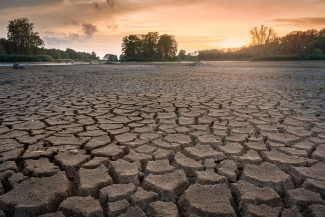FILTER
Displaying 481 - 490 of 3643 publications
The public acceptability of a policy is an important issue in democracies, in particular for anti-COVID-19 policies, which require the adherence of the population to be applicable and efficient…
| Peer Reviewed | VietnamWe investigate the problem of choosing environmental regulations to control a multilateral, spatially heterogeneous pollution externality. There are three sources of inefficiency in this problem; the…
| Peer Reviewed | Chile
What would motivate people to pay more for electricity generated by renewable energy sources?
| Peer Reviewed | VietnamForest ecosystem services are critical for human well-being as well as functioning and growth of economies. However, despite the growing demand for these services, they are hardly given due…
| Peer Reviewed | South Africa, KenyaExperiencing an extreme weather event and its consequences might make the risks associated with climate change more tangible, easier to evaluate, and more salient. Consequently, those experiences…
| Peer Reviewed |
•The decoupling trend between welfare and wealth is statistically verified for China.
•Legislation improvement can notably alleviate the decoupling trend.
•The effects vary across legislation...
Abstract Dilemmas related to the use of environmental resources concern diverse populations at local or global scales. Frequently, individuals are unable to visualize the consequences of their actions…
| Peer Reviewed | ColombiaAbstract In this study, the effect of galena mining with respect to heavy metal pollution of groundwater, surface water, soil and sediments in Enyimagalagu and Mkpuma-Akpatakpa Communities in Ebonyi…
| Peer Reviewed | NigeriaUrban managers in sub-Saharan Africa have recently come under intense pressure to prepare for and adapt to the footprints of rapid peri-urbanization and increased climate-related risks. Addressing…
| Peer Reviewed | Ghana
Cooking, an important household activity is often done using heavy polluting fuels by a majority of households in sub-Sahara Africa (SSA). In this study, we examine how the choice of cooking fuel...
| Peer Reviewed | Ghana